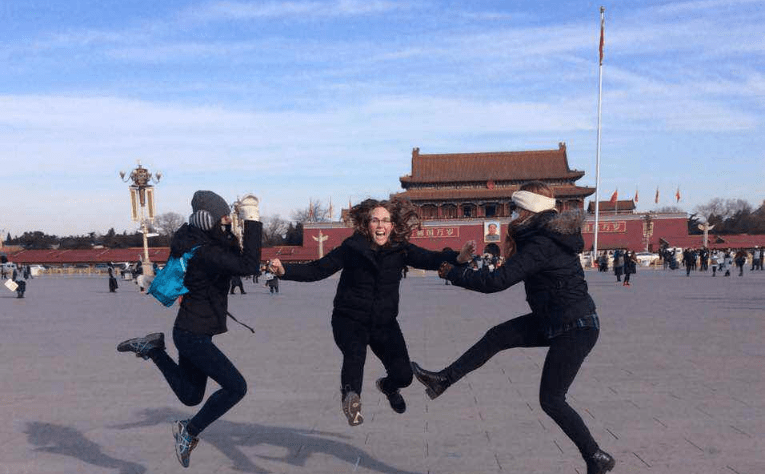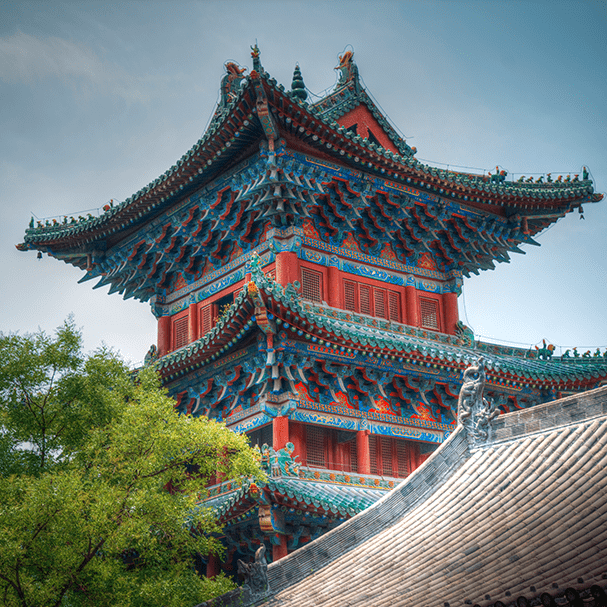Top Phrases for Making Friends in China: Giving Compliments (Part 1)
This post is by Jennifer Rives, Teach in China Alumni and Teach in Thailand Participant
Have you decided to move to China to teach English with CIEE and start a new life in one of the world’s most culturally rich and diverse places? If so, congratulations!
As someone who has lived in China twice, I can assure you that you are about to immerse yourself in one of the most beautiful cultures I have ever had the pleasure to experience. Without a doubt, you will learn things about the global community and yourself that you could never have imagined you’d learn before.
With that said, moving to another country requires a lot of cultural and personal adjustment. Sometimes, adapting to the norms and values of another culture can be overwhelming and downright stressful. During those times of cultural disequilibrium, a strong and supportive network of friends will help you to pull through. When I was feeling misunderstood or out of place in China, my Chinese friends were always there to cheer me up and remind me of my purpose and value as a TEFL teacher abroad.
So now the big question is... How do you make friends with people in China?
One way is to give compliments! In Chinese culture, people will compliment one-another to show them that they want to be their friend. So, if you'd like to make friends, then it's important to communicate that message back. Most importantly, make sure to do so in Chinese! Speaking the local language will show people at your school and in your local community that you’re interested and invested in learning about their culture.
To equip you with some of the best phrases for making friends in China, here's a list of the top 6 most popular compliments in Mandarin, including voice recordings so you can listen to the phrases and practice pronunciation. In my experience, these compliments have never failed to make Chinese people smile. Ready to give them a try?
This is probably everyone’s favorite compliment in China. So brace yourself— you will be given this compliment many, many times throughout your stay in China by lots of people, including random people on the street.
If you want to return the compliment to someone who gives it to you first, just add the word 也 / yě (also) to your sentence. So after someone tells you that you're beautiful/handsome, you can say, Nǐ yě hěn shuài a / Nǐ yě hěn piàoliang a! This means, “You’re handsome/beautiful too!”
I definitely recommend giving this compliment to a Chinese person whenever he or she tries to speak English with you. Chinese people are very shy about speaking English, so anytime someone makes the effort to have a conversation with you in English, give them this compliment to encourage them to keep practicing with you.
You will also find that Chinese people will give you this same compliment every time you try to speak to them in Mandarin. The word for Mandarin is 中文 / zhōngwén. So, this is how you will be told that you speak Chinese (Mandarin) well:
Nǐ de zhōngwén shuō de hěn hǎo! ( Audio 3 )
Use this compliment to praise someone for doing something that you consider to be really awesome or cool. For example, if someone is singing or dancing really well, you can tell him/her that he/she is awesome by saying, “Nǐ hěn bàng!” Or, if someone is speaking English with you and they are speaking it well, instead of saying “Nǐ de yīngwén shuō de hěn hǎo,” you can just tell them, “Nǐ hěn bàng!”
This phrase is very 'native,' so the response is usually a big smile and maybe even chuckle in surprise.
If you really want to sound local, tell someone “Nǐ hěn niú." You will definitely get a roaring response from Chinese people, complete with laughter, a look of happy surprise all over their faces, and a general vibe of ‘How the heck did this foreigner know that? That's awesome!'
牛 / Niú literally means cow in Chinese, but it is also a very popular slang word that means awesome/really cool/amazing/etc. Most foreigners don’t know this very colloquial phrase, which is why it will get you such a lively response.
As you can imagine, Chinese people are always happy to hear foreigners compliment their country. In fact, many Chinese people personally believe that as good citizen, they should try to show visitors the best parts of their country and culture, thus helping visitors have a great experience in China. The average Chinese person also has a lot of pride in his or her nation, so if you show appreciation towards the country, you will get a lot of positive feedback from people. After you say this compliment, people will definitely want you to tell them where you’ve been in China and what you thought about those places, so this compliment is also a great conversation starter.
Chinese people are immensely proud of their food— no wonder considering how delicious it is! Historically, the local cuisine has been central to Chinese culture. So naturally, food is also a favorite topic of conversation and a way of getting to know people. If someone wants to get to know you, he/she will invite you out to eat. Going out to eat is the most common social activity and way of spending time with people in China.
When someone takes you out to eat, make sure you praise the food. It is likely that the Chinese person you are out with will order for you. Therefore, when you are applauding the food, you are also saying that the host/person who did the ordering made you happy with the dishes he/she chose for you.
This phrase is used very often in China and has different meanings depending on the context in which it is used.
Whenever someone does something kind, considerate, or polite towards you, you can acknowledge their courtesy by saying “Nǐ tài kèqì le.”
For example, if someone invites you to come over to his/her house to eat dinner with his/her family, you can accept the offer and then say, “Nǐ tài kèqì le.” While you are giving that person a personal compliment and telling him/her that he/she is polite, you are ultimately saying that you appreciate that person’s kindness towards you.
The second translation is a little more culturally nuanced. In Chinese culture, modesty is considered to be one of the highest virtues a person can possess, if not the highest. Therefore, Chinese people will often downplay their personal qualities and achievements to appear modest, especially when they are first getting to know someone or are in a formal social situation.
To give an example, if you tell someone “Nǐ hěn shuài a (you’re so handsome),” I can almost guarantee that they will not respond with “Xiè xiè (thank you).” Instead, they will say something a little more self-deprecating like, “Oh, I’m not very handsome,” or “No, you’re more handsome than I am!” If you are first meeting someone or have only met him/her two or three times before, you don’t have to say anything in response to this act of modesty. Just acknowledge that it’s all part of the process of building relationships in China.
f you have known someone for a while, and you want to become closer to him/her, you can call him/her out on his/her polite modest response by saying “Nǐ tài kèqì le.” In this case, the message you’re really communicating is ‘You don’t have to be so polite when I compliment you anymore. I already know you’re polite. Let’s just be real with each other.’
This is a two part blog series on Chinese vocabulary. Stay tuned for part two!


